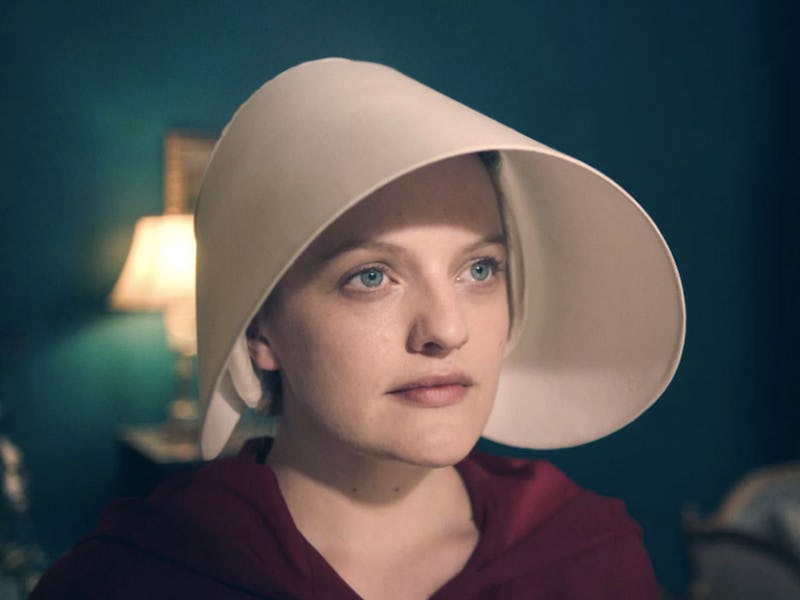Emmys Proved Dystopian Sci-Fi is So Hot Right Now
Here's what the 'Handmaid's Tale' and 'Black Mirror' wins really mean.

Dark, dystopian science fiction proved to be the most lauded genre in television as Handmaid’s Tale and Black Mirror dominated the 2017 Emmy Awards. But this doesn’t mean smart TV audiences aren’t hopeful about the future, in fact, these wins probably indicate the reverse.
On Sunday, at the 2017 69th annual Primetime Emmy Awards, the sci-fi drama Handmaid’s Tale picked up four awards including Best Drama, Best Actress, Best Supporting Actress, Best Directing, and Best Guest Actress. Meanwhile, the Black Mirror episode “San Junipero” won for Best Television Movie, and its writer, Charlie Brooker, won for Best Writing in a Limited Series. While it’s true that Black Mirror and Handmaid’s Tale are very different shows, both are rooted in the cautionary tradition of intelligent science fiction writing. While Handmaid’s Tale tackles contemporary gender inequality, Black Mirror dissects our shared technological concerns with a heavy amount of hyperbole and gloom.
Fans of Black Mirror will be quick to point out that the Emmy-award winning episode “San Junipero” is probably the most upbeat of the entire series. Still, because the premise of the episode initially finds the disembodied brains of two terminally ill women living in an unchanging, static version of the 1980s, the “heartwarming” nature of the story is totally relative to the extremely dark themes and plot details. Still, when little robots store the souls of Yorkie and Kelly permanently in a giant mainframe of other digitized human minds, the image is straight-up chilling.
Of course, “chilling” doesn’t begin to describe the horrific patriarchy presented in The Handmaid’s Tale. Margaret Atwood’s classic novel has been the standard of cautionary dystopian fiction since its publication 1985. And though, the story itself presents very little hope for the viewer, the existence and the popularity of the Hulu adaptation of this novel is inherently hopeful. In fact, in conjunction with the launch of the show, Atwood penned a new ending to the book, one which leaves the door wide-open for additional stories from the world of Gilead. Again, while this might sound like a consolation prize to a very, very depressing story, imagine if George Orwell were alive, that 1984 was an award-winning TV show, and that he’d written a new, less definitive ending to the novel. That’s essentially what has happened with the success of Handmaid’s Tale and Atwood’s involvement with the show. The result here is that a science fiction writer with a conscience was one of the biggest stars at the Emmy’s, even if she wasn’t the one on stage.
Critics might dismiss dark sci-fi like Black Mirror and The Handmaid’s Tale as a passing fad among television viewers. But, they would be wrong. If well-crafted stories of future societies gone berzerk continue to resonate with TV audiences, then there’s every reason to believe we’re all collectively trying to avoid those bleak futures in real lif. And that’s because the hopelessness of Black Mirror or Handmaid’s Tale, should, and does, inspire a lot of hope.
The fourth season of Black Mirror returns to Netflix in October.
Handmaid’s Tale season 2 hits Hulu sometime in 2018.